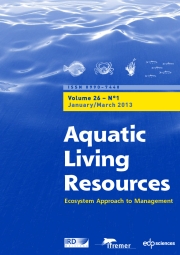Article contents
Input controls vs. rights-based management: the political economy of fisheries management in Atlantic Canada
Published online by Cambridge University Press: 15 July 1995
Abstract
This paper examines the Canadian experience with quota managed fisheries, reviewing institutional structures and approaches. It begins with a review of management objectives following the extension of jurisdiction and traces the nature and rationale of changes. The specific measures used to achieve objectives are examined from a theoretical and practical perspective. The measures fall into two broad categories: conventional input controls: vessel and gear restrictions; and, output controls: tradable and non-tradable enterprise/individual quotas.
The experience indicates that input controls are largely ineffective in constraining effort. These measures fail to address the common property characteristics of the resource and consequently failed to blunt the incentives for share maximization and increased capitalization. These in turn lead to overfishing and misreporting, thereby undermining management objectives. Output controls in the form of individual tradable quotas fare better in constraining effort. They lead to fleet rationalization and improved quality and flow of raw material to processing facilities. But they may also lead to highgrading and discarding, as quantity incentives give way to unit-value incentives under the rights-based regime.
Some of the carly failures and more recent successes of policy are outlined, lessons are drawn and suggestions made about future directions.
Keywords
- Type
- Research Article
- Information
- Copyright
- © IFREMER-Gauthier-Villars, 1995
- 1
- Cited by




